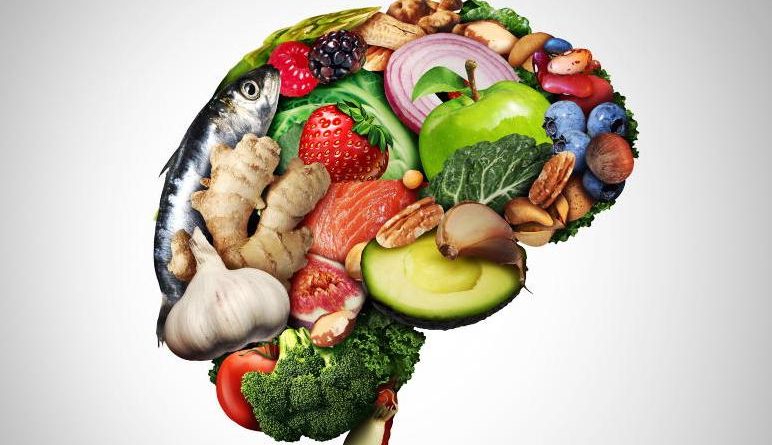
Cognitive function and brain health are vital aspects of overall well-being. While factors like genetics and lifestyle play a role, nutrition also has a profound influence on cognitive function. In this comprehensive article, we will delve into the fascinating world of how what we eat can affect our brain health and cognitive abilities. We will explore the essential nutrients, dietary patterns, and lifestyle choices that promote optimal brain function.
Section 1: The Role of Nutrition in Brain Health
1.1 Omega-3 Fatty Acids:
- Discuss the significance of omega-3 fatty acids in brain health.
- Explain how these fats contribute to brain structure and function.
- Suggest dietary sources rich in omega-3s, such as fatty fish, flaxseeds, and walnuts.
1.2 Antioxidants:
- Describe the role of antioxidants in protecting the brain from oxidative stress.
- Highlight foods like berries, dark chocolate, and leafy greens that are rich in antioxidants.
- Discuss how these compounds support cognitive function.
Section 2: Nutrients That Boost Cognitive Function
2.1 Vitamin B Complex:
- Explore the different B vitamins and their impact on brain health.
- Provide examples of foods that are excellent sources of B vitamins.
- Discuss how these vitamins are involved in neurotransmitter production and brain energy.
2.2 Minerals:
- Highlight the importance of minerals like magnesium, zinc, and iron in brain function.
- Explain how mineral deficiencies can affect cognitive abilities.
- Offer dietary recommendations to ensure an adequate intake of these minerals.
Section 3: Brain-Boosting Foods and Dietary Patterns
3.1 The Mediterranean Diet:
- Discuss the Mediterranean diet’s positive effects on brain health.
- Provide a sample meal plan and recipes that adhere to this dietary pattern.
- Explain how the diet’s components, like olive oil and fatty fish, benefit cognition.
3.2 Superfoods for the Brain:
- Present a list of superfoods known for enhancing brain function.
- Include recipes and serving suggestions for incorporating these foods into daily meals.
Section 4: The Gut-Brain Connection
4.1 Gut Microbiota:
- Explain the link between gut health and cognitive function.
- Discuss the role of probiotics and prebiotics in supporting a healthy gut microbiome.
- Provide dietary strategies to promote gut-brain health.
4.2 Inflammation and Cognitive Decline:
- Explore how chronic inflammation can contribute to cognitive decline.
- Offer anti-inflammatory dietary tips to protect brain health.
Section 5: Lifestyle Choices for Cognitive Well-Being
5.1 Physical Activity:
- Describe the benefits of exercise on cognitive function.
- Recommend types and durations of physical activity for brain health.
5.2 Sleep and Stress Management:
- Explain the importance of sleep and stress reduction in cognitive well-being.
- Offer practical tips for improving sleep quality and managing stress.\
What are the foods that should be avoided during pregnancy?
During pregnancy, it’s generally recommended to avoid the following foods:
- Raw or undercooked seafood, eggs, and meat to prevent foodborne illnesses.
- High-mercury fish like shark, swordfish, king mackerel, and tilefish, as they can harm fetal development.
- Unpasteurized dairy products, such as certain soft cheeses and raw milk, to reduce the risk of Listeria infection.
- Deli meats and hot dogs unless heated to steaming to prevent Listeria contamination.
- Excessive caffeine, as it may increase the risk of miscarriage or preterm birth.
- Alcohol, as it can harm the developing baby.
- High-sugar and high-fat foods, as they can contribute to excessive weight gain.
- Unwashed fruits and vegetables to avoid potential exposure to harmful bacteria or parasites.
- Artificial sweeteners like saccharin, which should be consumed in moderation.
- Herbal teas and supplements, as some can be unsafe during pregnancy.
It’s important to consult with a healthcare provider for personalized guidance on dietary restrictions during pregnancy.
In conclusion, the impact of nutrition on cognitive function and brain health is undeniable. By understanding the role of essential nutrients, adopting brain-boosting dietary patterns, and making healthy lifestyle choices, individuals can optimize their cognitive abilities and support long-term brain health. Prioritizing a nutritionally rich diet is an investment in a sharper mind and a better quality of life.
Ultimately, investing in a nutritionally rich diet is an investment in a brighter, more resilient mind, setting the stage for a future filled with mental clarity, sharpness, and an improved quality of life.






